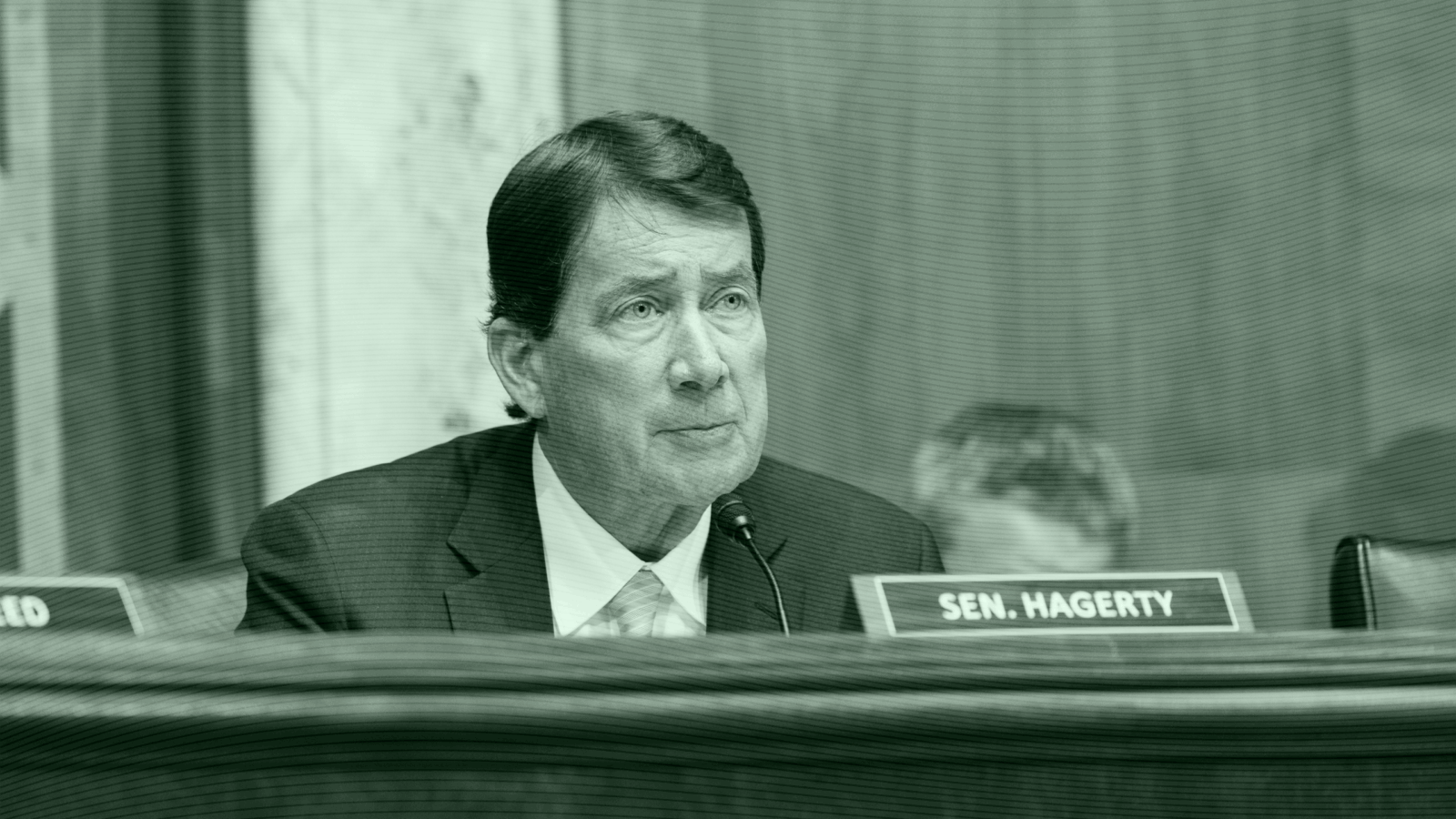Good morning.
Pretty, please … with a cherry on top.
LPL Financial’s $2.7 billion acquisition of Commonwealth that was announced earlier this year kicked off a major rush for advisor talent in the independent broker-dealer space. And just this week, Cetera made its second public appeal to the free agents. In the aptly named “An Open Letter, Part Two,” Cetera Wealth Management President Todd Mackay said the deal will benefit LPL shareholders, not Commonwealth advisors, and that the acquisition wasn’t designed to protect advisors’ brands: “YOU are the celebrity we want to hang out with!” Additionally, Cetera will provide advisors with up to 150 basis points of transition assistance and the choice to continue using Fidelity’s custodial service.
If Cetera literally wants to sweeten the deal some more, they should cave and let advisors have ice cream before dinner.
What the GENIUS Act Means for Stablecoins and Advisors

Who wouldn’t like a little more stability in their life? In the chaotic world of crypto, at least, some may be on the way.
The Senate approved a regulatory framework for stablecoins, dubbed the GENIUS Act, this week. The bill, which has yet to be passed by the House of Representatives, would require tokens to be backed by liquid assets including the US dollar and short-term Treasurys, and issuers would have to publicly disclose composition of their reserves each month.
Despite crypto’s roughly $3.4 trillion global market cap and even President Trump championing digital assets, they still remain divisive for advisors. While some are comfortable allocating up to 10% of a client’s portfolio to crypto products, others wouldn’t touch them with a 10-foot pole. However, if the stablecoin bill becomes law, it could bring a greater sense of legitimacy and clarity to the asset class.
“This stablecoin framework, if it sticks, is the first adult move we’ve seen from Washington in a long time,” said Christopher Haigh, CEO of Iconoclast Capital, adding that his firm is very crypto-forward. “We’re finally talking about guardrails instead of hand-wringing.”
Ready, Willing, and Stable
Because stablecoins outlined in the framework would be backed by the dollar or Treasurys, some advisors might be questioning the point: Why not just hold cash or government bonds? However, stablecoins should be viewed less as investments that bring returns and more as a means of doing business, said Campbell Harvey, Duke University professor and Research Affiliates partner.
“Within 12 seconds, you can transfer money anywhere in the world,” he told Advisor Upside. “There is a role to diversify portfolios, and stablecoins enable that and serve to reduce transaction costs.” He added that advisors place themselves at a disadvantage by ignoring the sheer size of the cryptomarket, including the stablecoin sector. The biggest stablecoins include: Tether, with more than $155 billion in market value; USDC, with more $61 billion; and USDS, with more than $7 billion.
Stablecoins’ cheap trading costs and automatic accounting on blockchain ledgers make them incredibly attractive to companies and banks, Harvey added. “Expect to see an explosion in the number of stablecoins,” he said. “I can’t imagine a large bank not initiating a stablecoin.”
Natural Selection. It might be easy to think of crypto as only Bitcoin and 1,000 other altcoins with goofy names that operate more like Texas Hold’em than actual stores of value. But in an increasingly digital world, stablecoins are just the next step in managing portfolios, said David LaValle, global head of ETFs at Grayscale.
“There’s this common, quick gut reaction that I sometimes get from people that say: ‘Oh my gosh, these stablecoins are a real risk to the government, to e-bills or to money market funds in the US,’” he said at the Wealth Management EDGE conference in Boca Raton, Florida, last week. “It’s going to be a really efficient place to park your money, and it’s just a natural way to go.”
How To Start An RIA: A Guide To Going Independent
The business of financial advice is booming, and the M&A market for fast-growing firms is buoyant. It’s no wonder that many entrepreneurial advisors have considered making a jump, hanging their own shingles, and creating their own firms.
Before you do, consider these key questions:
- Does your current contract, non-compete, or other agreements impact your ability to launch a firm?
- How much time and money does it take to register and launch a new RIA?
- What are the biggest hurdles to building your own pipeline?
To help you navigate the transition, Betterment Advisor Solutions has developed a three-phase roadmap that covers what you need to know from registering your firm with regulators to setting up compliance frameworks to building a deep bench of quality clients.
Take the first step toward independence and download the “The Ultimate 2025 Breakaway Guide” guide.*
Why UBS Is the Only Wirehouse to Allow Podcasting
The future is here, and it’s now available wherever you get your podcasts.
For the past several years, UBS has built out its podcasting program to help its advisors launch their own shows, expand their online reach and connect with younger audiences. The initiative is designed to help advisors connect with the next generation of wealth management clients and bring in new assets, according to Mitch Slater, executive director of digital communications for the wirehouse’s national sales. A recent report found that every dollar spent on podcasting may generate an additional dollar in new revenue, and that podcasts’ ability to attract clients increases over time.
“The fact is, it’s $80 trillion being moved over from my generation to the generations below,” said Slater. “If you’re not skating to where the puck is, and the puck is [phones]… we just got to get there. To me, the podcast seems to be a really great way to do this.”
Boom Goes the Mic
Podcasting in general is in its heyday, with the number of Americans who listened to one in the past month jumping to 158 million in 2025 from 135 million a year earlier, according to data from Backlinko. More than half of the US population are now monthly listeners, an important fact to consider amid the Great Wealth Transfer, Slater said.
UBS is the only wirehouse that lets its advisors market their businesses via podcast, Slater said, adding that every episode, before it gets uploaded to Apple Podcasts or Spotify, is subject to regulatory approval based on the Series 9, 10 and 24 exams advisors take. Although only about 1% of UBS’s advisor workforce — roughly 60 out of 6,000 advisors — are podcasting, he expects the venture to expand quickly and said there are another 10 to 15 podcasts in the works. UBS now has dozens of podcasts that speak to such niches, including:
- “Lightning in a Bottle,” a podcast led by the UBS advisors Josh Pottinger and Jason Chirogianis, which focuses on how advisors can monetize their ownership positions.
- “Huvane Wealth Management Conversations,” another show led by a New York-based UBS team, which focuses on portfolio strategies, taxes, next-gen investors and sustainable investing.
But First, Lemme Take a Selfie (Video). Slater also leads the firm’s “selfie video program,” in which he coaches advisors on how to film themselves vertically, primarily for LinkedIn and YouTube. At the height of the coronavirus pandemic, he said, the videos helped calm nervous clients. “Everyone has to have some form of marketing,” Slater said. “Whether it’s podcasts, whether it’s videos, whether it’s a better LinkedIn engagement program — there’s something that’s right for everybody.”
How Advisors Can Avoid Becoming Over-Reliant on AI

Apparently there’s no AI in team.
Artificial intelligence is being hailed as a key element of the fourth industrial revolution, and new tools are now assisting financial advisors with taking notes, drafting emails, and brainstorming thought leadership content. In fact, the vast majority of advisors said generative AI helped their practices, according to a survey earlier this year.
But AI isn’t a silver bullet. It lacks emotional intelligence and a human touch. Advisors risk damaging client relationships if they become too reliant on automation — even for routine tasks. “AI is poor at empathy so far,” said Adrian Johnstone, CEO of the CRM platform Practifi. “Advisors need to recognize where the personal connection is most powerful, and use AI to automate and alleviate the lesser functions.”
Keep it Personal
Today, most advisors use AI to boost meeting efficiency and streamline workflows. Ideally, this frees up more time to spend with clients, but misusing these tools can backfire. “The common refrain of disaffected clients is: ‘I pay you to understand me, my goals, and my fears, not to outsource me to a machine,’” Johnstone said.
Wealth management is built on bespoke service, but AI hasn’t yet learned to fully adapt to individual client needs and goals. While tools that draft emails and website content are improving, the output still reads “hollow and generic,” Johnstone warned.
Use it or Lose it. Client-facing AI tools can be “extremely risky” because they can’t interpret emotional undertones of client’s concerns, said Rafael Loureiro, CEO of Wealth.com, an estate planning platform. Still, AI can be useful for quick, factual tasks. “If it’s midnight on a Sunday and a client asks, ‘What was my marginal tax rate last year?’ that’s a perfect use case,” Loureiro said. “It’s not doing financial planning, but answering factual questions.”
Everything in Moderation. This isn’t the first time new tech or strategies meant to disrupt the wealth management industry have wound up causing trouble for advisors and their clients. Will Trout, director at Datos Insights, pointed to the 2008 financial crisis as a warning. “Firms that over-relied on risk models without human oversight suffered catastrophic losses,” he told Advisor Upside.
Extra Upside
- Fact or Fiction. Wealth Teams Solutions Founder Guy Baker breaks down bond myths.
- Catch of the Day. Former Integrated Partners exec Rob Sandrew to head Mariner’s $40bn independent channel.
- Making The Jump To Independence? Betterment’s “The Ultimate 2025 Breakaway Guide” guide walks you through essential considerations like obtaining legal guidance and certifications, registering with the SEC, and setting up your tech stack. Read the guide today.*
* Partner
Edited by Sean Allocca. Written by Emile Hallez, Griffin Kelly, and Lilly Riddle.
Advisor Upside is a publication of The Daily Upside. For any questions or comments, feel free to contact us at advisor@thedailyupside.com.
Disclaimer
*Paid non-client.Views may not be representative. See App Store and Google Play reviews. Learn More.

